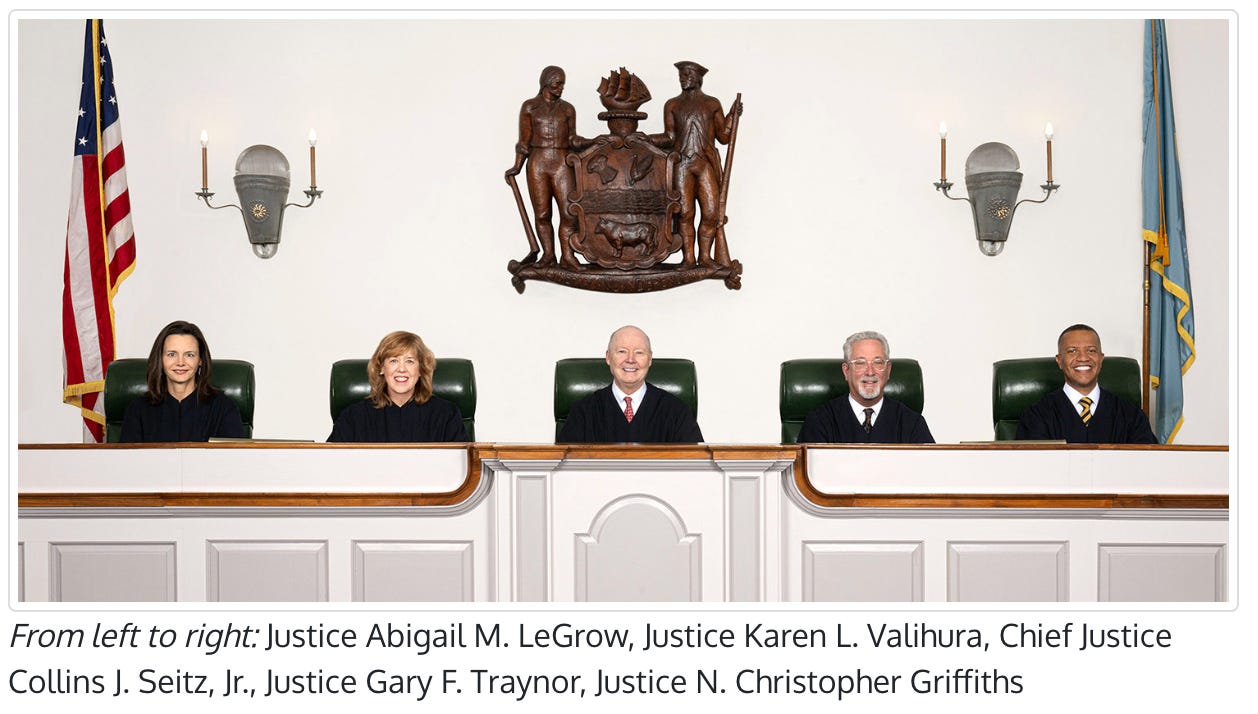Making Delaware Corporate Law: The Players' Incentives Part III
The judiciary
In the last two posts, I described the Delaware Way—the stolid, boring process by which the dominant corporate law state makes its law—and the way it has broken down in several high profile cases.
In order to understand why the Delaware Way usually works and why it sometimes breaks down, I’ve argued that we need to understand the incentives of the three major players in the process: the legislature, the state bar, and the judiciary. In the first post, I discussed the incentives of the legislature. In the second, I turned to the incentives of the state bar. In this post, I turn to that of the judiciary.
Keep reading with a 7-day free trial
Subscribe to Bainbridge on Corporations to keep reading this post and get 7 days of free access to the full post archives.




